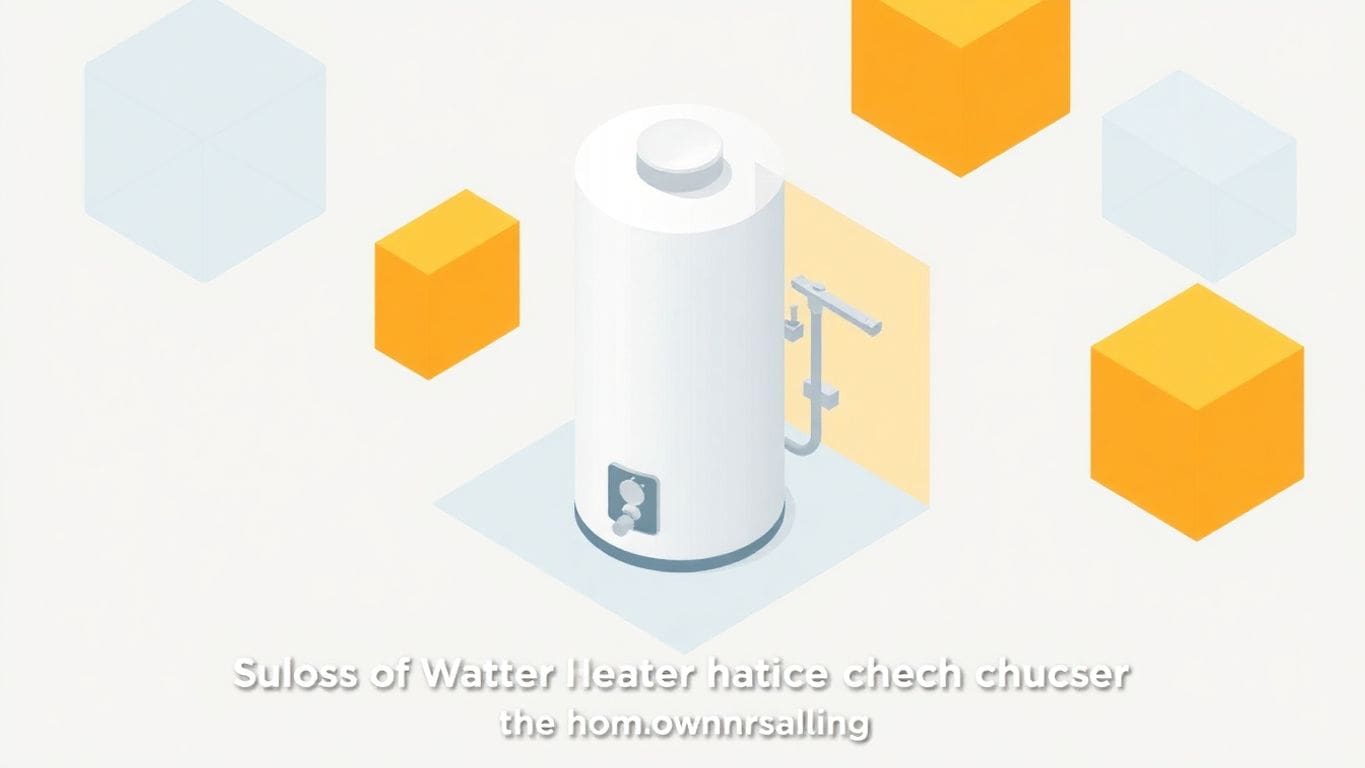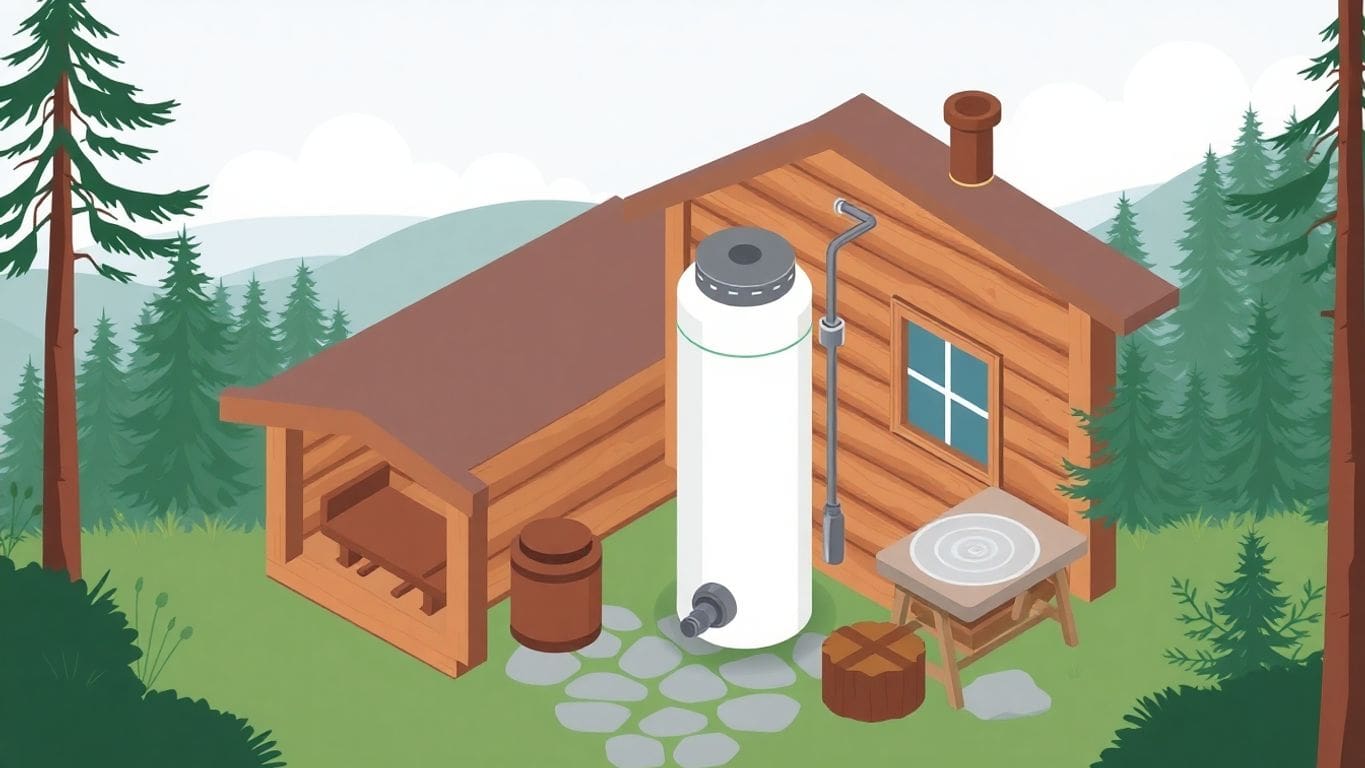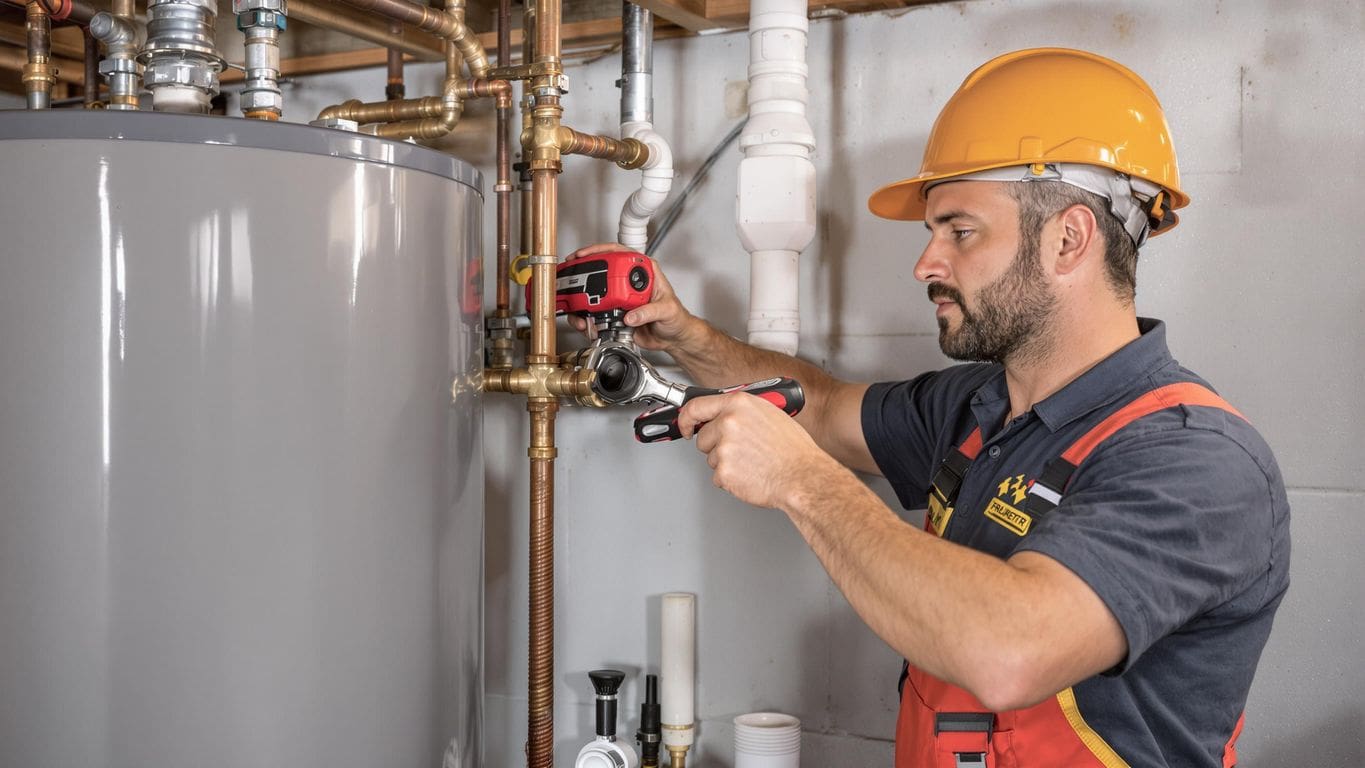
If your electric water heater is acting up, you might be wondering who can fix it. It’s not always clear whether to call a plumber, a technician, or try to fix it yourself. This guide will help you understand the ins and outs of electric water heater repairs, from spotting issues to finding the right professional for the job.
Electric water heaters are pretty common in many homes. They’re a simple way to get hot water for showers, washing dishes, and laundry. Let’s learn more about them.
Electric water heaters use electricity to heat water. Inside the tank, there are heating elements that look like big metal rods. When you turn on the hot water, cold water flows into the tank. The heating elements heat the water, and then the hot water is sent to your faucets and appliances. It’s like a giant electric kettle for your whole house!
There are two main types of electric water heaters:
Electric water heaters have some good things going for them:
Electric water heaters are a reliable way to get hot water. They’re simple to use and can be a good choice for many homes. Just make sure to think about the size you need and whether a tank or tankless model is better for you.
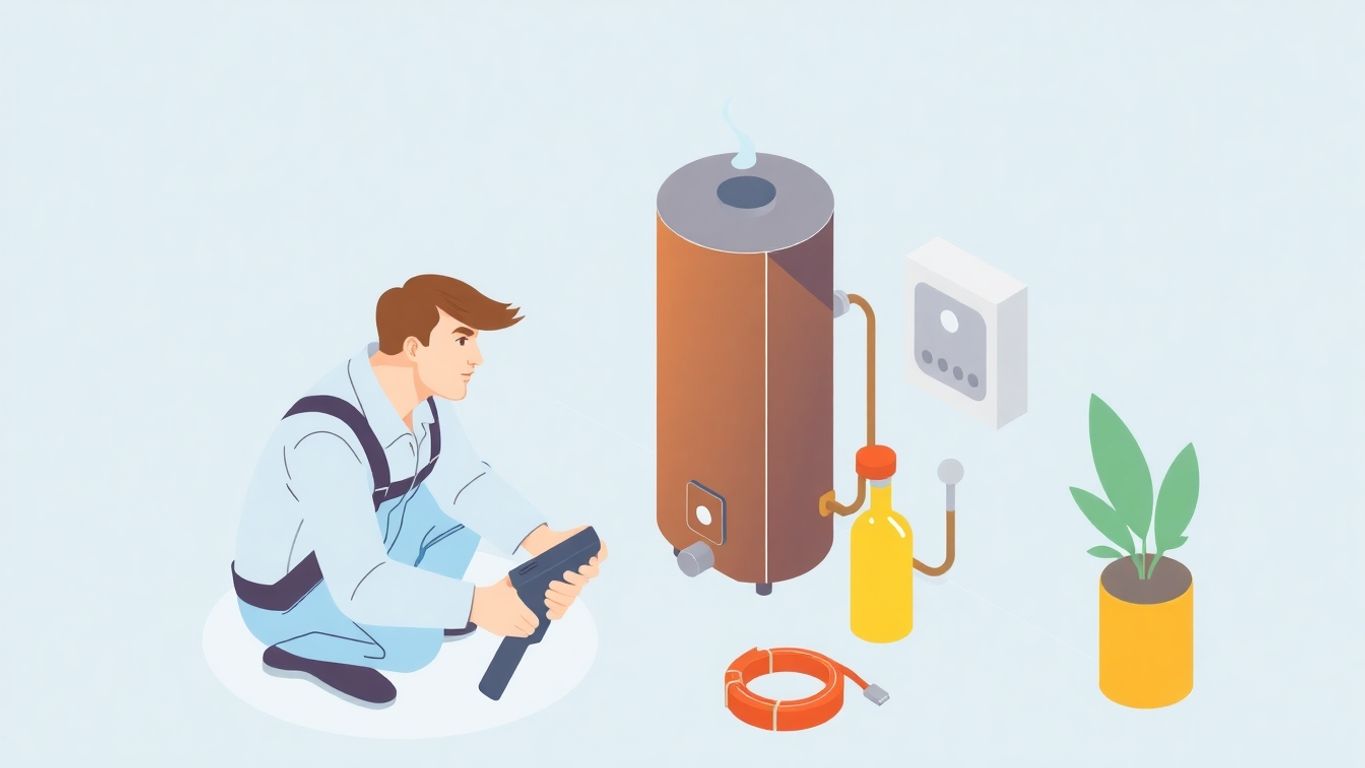
It’s good to know what problems can happen with your electric water heater. This way, you can catch small issues before they become big, expensive problems. Let’s look at some common signs and what you can do.
Your water heater will often give you clues when something is wrong. Here are some things to watch out for:
Before you call for help, there are a few simple things you can check yourself. These steps might save you time and money. First, check the thermostat settings to make sure they are correct. Sometimes, the thermostat can get bumped or accidentally turned down. Next, look at the circuit breaker for the water heater. Make sure it hasn’t tripped. If it has, reset it. If it trips again right away, there’s likely a bigger electrical problem. Finally, if you’re comfortable doing so, you can try flushing the tank to remove sediment. There are many videos online that show you how to do this safely.
Some water heater problems are too big or too dangerous to handle yourself. You should call a professional if:
Remember, safety first! If you’re ever unsure about something, it’s always best to call a qualified technician. They have the knowledge and tools to diagnose and fix the problem safely and effectively. Ignoring a water heater issue can lead to bigger problems and costly repairs down the road. Regular checks can help you catch problems early.
So, your electric water heater is on the fritz. Who do you call? It’s a good question! Several types of pros can handle these repairs. Let’s break down your options.
You have a few choices when it comes to who can fix your electric water heater. The most common are plumbers and HVAC technicians. Electricians can also help, especially with electrical issues.
Not just anyone can safely and correctly fix a water heater. You want someone with the right qualifications. Here’s what to look for:
When it comes to fixing things, experience matters. Someone who’s worked on many water heaters is more likely to diagnose the problem quickly and fix it right the first time. They’ve seen it all before! An experienced pro can also help you decide whether to repair or replace your water heater, saving you money in the long run.
Hiring someone without experience can lead to more problems. They might misdiagnose the issue or do a poor repair job. This can end up costing you more money and headaches down the road.
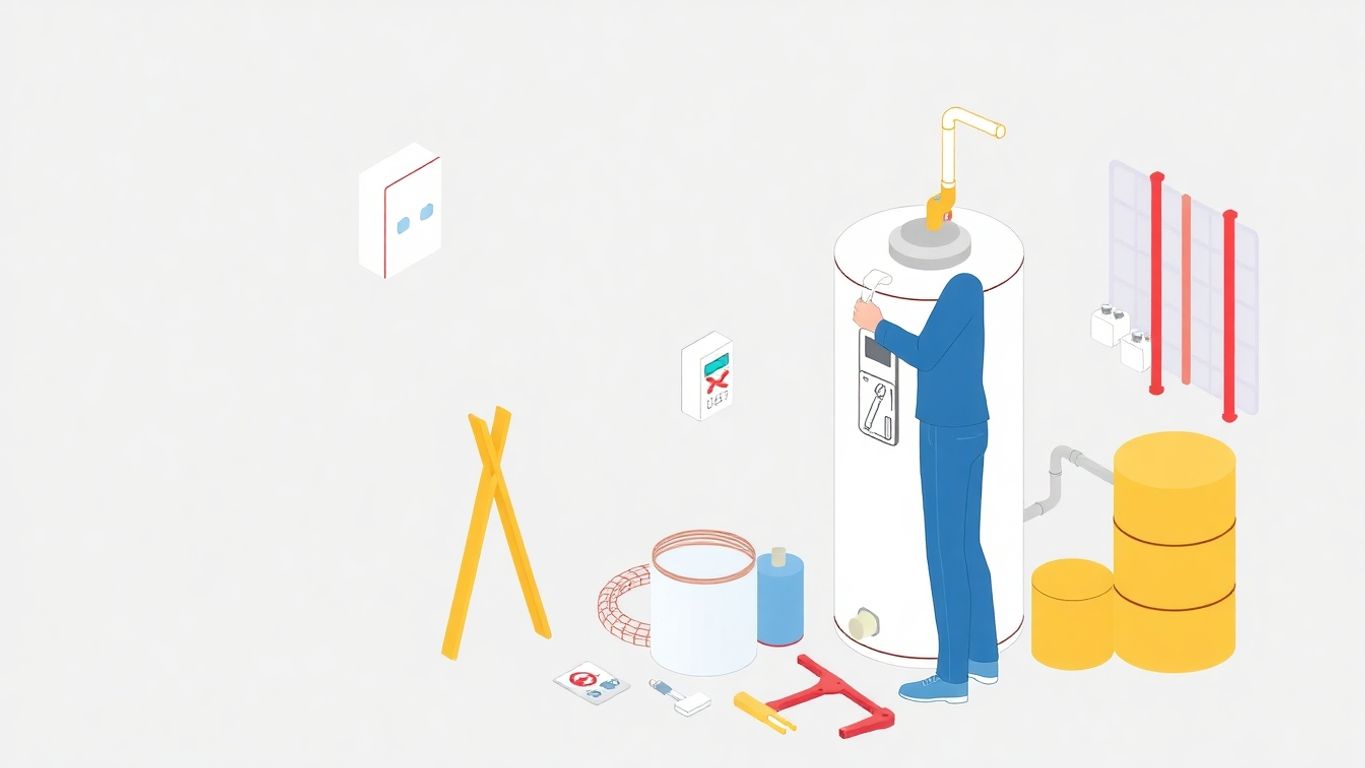
So, your electric water heater is acting up. Before you call a pro, you might wonder if you can fix it yourself. Doing it yourself can save money if you know what you’re doing. Simple things like replacing a thermostat or a heating element might be manageable if you’re comfortable with basic electrical work and plumbing. Always turn off the power and water supply first! If you’re handy and the problem seems small, give it a shot. Just be honest about your skills.
Hiring a professional has some big pluses. Professionals have the experience and training to diagnose problems quickly and fix them right. They also know all the safety rules. Plus, they can spot other potential issues before they become big problems. Sure, it costs more upfront, but it can save you money in the long run by avoiding bigger repairs later. Here’s a quick list of benefits:
DIY repairs can be risky if you’re not careful. Messing with electricity and water can be dangerous. You could get shocked or cause a flood. Also, if you do something wrong, you might void your water heater’s warranty. Plus, some repairs are just too complicated for a beginner. If you’re not sure, it’s always best to call a professional. It’s better to be safe than sorry.
Trying to fix something you don’t understand can lead to more damage and higher repair costs in the end. It’s important to assess your skills honestly and know when to call for help.
It can feel hard to pick the right repair service for your electric water heater. You want someone you can trust to do the job well and not rip you off. Here’s how to make a good choice.
Start by looking around your area. Ask friends, family, or neighbors if they know anyone good. You can also search online for local repair services. Make a list of a few different companies to check out.
Make sure the people working on your water heater know what they’re doing. Credentials show they have the right training and licenses.
Customer reviews can give you a real sense of what a company is like. Look for reviews on sites like Google, Yelp, or the company’s own website.
Choosing the right repair service takes a little time, but it’s worth it. By doing your research and checking credentials, you can find someone who will fix your water heater right and give you peace of mind.
Fixing a water heater can cost different amounts. It’s good to know what makes the price go up or down. This way, you can plan your budget and not get surprised by a big bill.
The average cost to fix an electric water heater can be anywhere from a hundred dollars to several hundred. Simple fixes, like changing a heating element, will usually be cheaper. Bigger problems, like a leak or a bad thermostat, will cost more. The exact price depends on the problem and the parts needed.
Several things change how much you’ll pay:
It’s smart to have a plan for paying for water heater repairs. Here’s how:
It’s a good idea to set aside some money for home repairs. This way, you’re ready when something like your water heater breaks down. Even a small amount each month can help.
Getting ready for a water heater repair visit can make the whole process smoother. Knowing what to expect and having the right info ready helps the repair person fix your electric water heater faster and more efficiently. Here’s how to prepare:
First, know what will happen during the appointment. Usually, the repair person will:
It’s a good idea to have some questions ready. This helps you understand the problem and the repair. Here are some questions you might want to ask:
Make sure you have all the information the repair person needs. This can include:
Having this information ready can save time and help the repair person diagnose the problem more quickly. It also helps them give you a more accurate estimate for the repair. By being prepared, you can make sure the repair goes smoothly and your water heater is back up and running in no time.
Taking care of your electric water heater can help it last longer and work better. Regular maintenance can also save you money on repairs in the long run. Here’s what you need to know.
Regular maintenance is key to keeping your electric water heater running smoothly. By following these simple steps, you can prevent costly repairs and extend the life of your unit.
Pay attention to any changes in how your water heater works. Here are some things to watch out for:
Here are some extra tips to help your electric water heater last longer:
It’s easy to overlook warranties and guarantees when dealing with a broken water heater. But knowing about them can save you money and stress. Let’s break down what you need to know.
When you buy a new electric water heater, it usually comes with a warranty. This is like a promise from the maker that the heater will work for a certain time. Read the warranty carefully to see what it covers. Some warranties cover parts, labor, or both. Also, check how long the warranty lasts. Some are for a few years, while others might be longer.
If your water heater breaks down while it’s still under warranty, the maker might fix it for free or at a reduced cost. You’ll need to follow the warranty’s rules to get the repair covered. This might mean using an approved repair person or sending in some paperwork. Keep in mind that warranties usually don’t cover problems caused by improper use or not keeping up with maintenance.
Keep all your paperwork related to your water heater. This includes the receipt, the warranty, and any repair records. If you need to make a warranty claim, you’ll need these documents to prove when you bought the heater and what work has been done on it. Good records can make the warranty process much smoother.
Keeping good records is super important. I learned this the hard way when my fridge broke down. I couldn’t find the receipt, and the warranty was useless. Now, I keep everything in a file folder!
Water heaters usually work without any problems, but sometimes things go wrong. Knowing what to do in an emergency can save you from a lot of trouble and keep your home safe.
Not all water heater problems are emergencies. A small leak might be annoying, but a major leak or a complete failure needs quick action. Here’s how to tell if you have a water heater emergency:
If you have a water heater emergency, here’s what you should do right away:
Dealing with a water heater emergency can be stressful. Remember to stay calm and follow these steps to keep yourself and your home safe.
When you need help fast, here’s how to find emergency water heater services:
It’s always a good idea to have the number of an emergency plumber saved in your phone, just in case. Being prepared can make a big difference when something goes wrong.
Sometimes, fixing a water heater is more than a simple DIY job. You should call a plumber when:
Trying to fix something yourself when you’re not sure what you’re doing can make the problem worse. It’s better to be safe and call a professional.
You might wonder if you need a plumber or a general technician for water heater repair. Here’s the difference:
For most water heater problems, a plumber is the best choice. They have the right skills and tools to do the job right.
Hiring a plumber for plumbing services has many benefits:
It might cost more to hire a plumber, but it’s often worth it to get the job done right and avoid future problems.
It can be hard to find someone you can trust to fix your electric water heater. You want someone who knows what they’re doing and won’t rip you off. Here’s how to find a good repair service.
The internet can be a big help. You can use search engines like Google or Bing to find local repair services. Make sure to type in your city or town to get local results. You can also check websites like Yelp or Angie’s List. These sites often have reviews from other people who have used the services. Just remember that not all online reviews are real, so take them with a grain of salt.
One of the best ways to find a good repair service is to ask people you trust. Do you know anyone who has had their water heater fixed recently? Ask them who they used and if they were happy with the service. Word-of-mouth is often the most reliable way to find a good professional. Don’t be afraid to ask neighbors, friends, or coworkers for their suggestions.
Once you have a few names, it’s time to do some checking. Call each company and ask them some questions. Find out how long they’ve been in business and if they are licensed and insured. You can also ask for references from past customers. A good company will be happy to provide this information. Also, pay attention to how they treat you on the phone. Are they polite and helpful? Do they seem knowledgeable? Your gut feeling can be a good guide.
Finding a reliable water heater repair service takes a little time and effort, but it’s worth it. You want someone who will do the job right and not overcharge you. By using online resources, asking for recommendations, and checking out the companies, you can find a service you can trust.
If your water isn’t heating up, there are strange noises, or you see leaks, it might be time for a repair.
You can try small fixes if you know what you’re doing. But for big problems, it’s safer to call a pro.
Look online, ask friends or family for recommendations, and check reviews to find a reliable service.
Make sure they have the right licenses and experience in fixing electric water heaters.
Repair costs can vary, but on average, you might pay between $150 to $500 depending on the issue.
Turn off the power and water supply, then call a professional immediately to avoid further damage.
If your heater is over 10 years old or has frequent problems, it might be time to consider a replacement.
Regularly check the temperature settings, flush the tank to remove sediment, and inspect for leaks.

